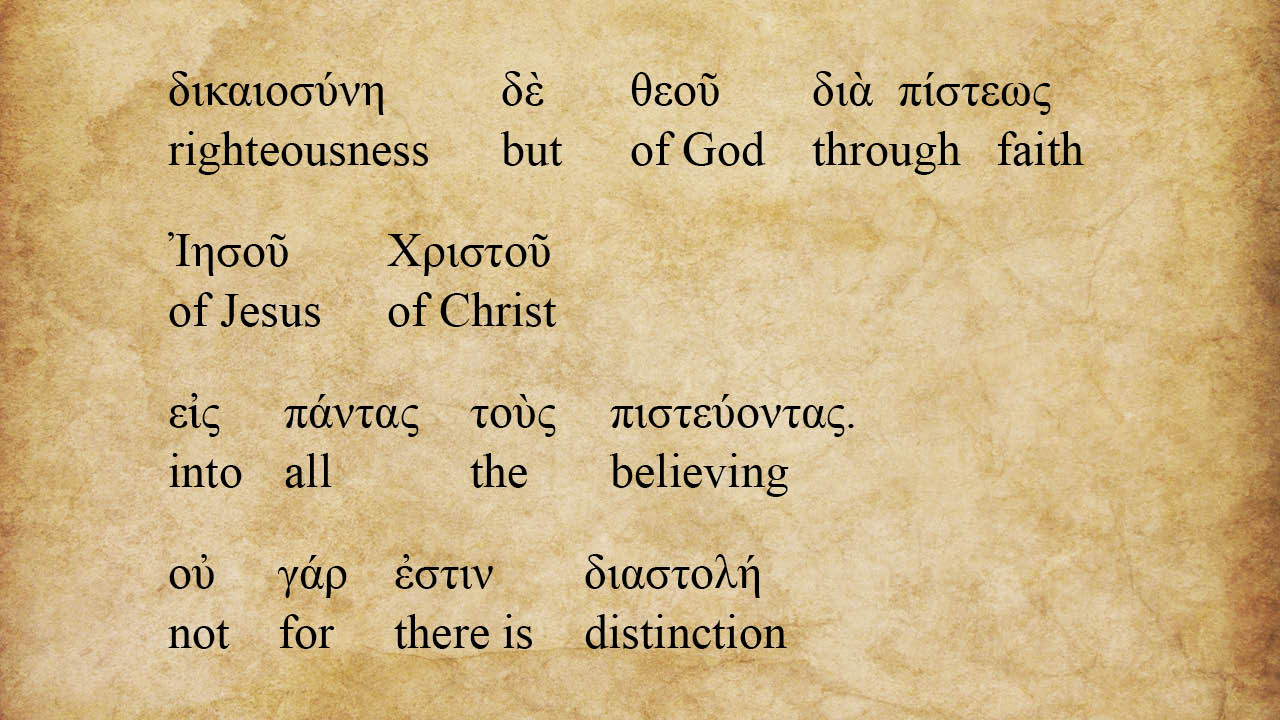For an Informed Love of God
You are here
Literal Translations and Paraphrases
People often say there are two forms of translation, "formal" and "functional." One is more "word-for-word" and the other is more "thought-for-thought." This is not accurate. There are actually five, and a truly "literal" Bible is not really a biblical translation at all.

Without being simplistic, I’ve learned that translation is not translating words; it’s translating meaning. To put it another way, translation is the process by which we reproduce the meaning of the text; translation does not replicate the form of the text. To explain this, I need to talk about what I’ve learned about translation theory in general, and it’ll take four more posts to do so.
Most people say there are two basic approaches to translation.
1. Formal equivalence says that the purpose of translation is to adhere as closely as possible to the grammatical structures of the original language, altering the translation only when necessary to convey meaning. “Word-for-word” describes this approach.
2. The functional (dynamic) view of translation uses the words (along with other things like grammar and context) to discover the original meaning — the “authorial intent” — and then conveys the same meaning in the target language.
Translations don’t fit neatly into one of these approaches or the other; they fit along a continuum with significant overlap. For example, the same translation can be formal in one verse and functional in the next. However, most people think in terms of these two basic approaches.
I’ve come to see that this isn’t accurate; there are at least five categories of translation theory. I’ll talk about the first two of them in this post.
Literal
Although I’ve already expressed my dislike of this term, I’ll use it here to make a point. If someone wants a “literal” translation, using the term “literal” in its improper sense, there is only one example of a “literal translation”: the interlinear.
An interlinear will list the Greek words in Greek word order, and under each Greek word there will be a gloss for its meaning. See Romans 3:22 in the graphic above.
Is this understandable? Barely. Is it translation? No. As much as I’d like the word “literal” to go away, I doubt it will. Will people start to use the word accurately? I hope so. But please, don’t believe the marketing hype: there is no such thing as a “literal” translation. The very idea is linguistic nonsense.
Paraphrases
The term ”paraphrase” is sometimes used in discussions of translations, sometimes equating it with loose translations that change or distort the historical meaning of the text. As is the case with the term “literal,” we need to use words that actually mean what we say they mean.
Linguists use “paraphrase” for a rewording for the purpose of simplification in the same language, not in a different language. So the Living Bible is a true paraphrase since it’s a simplification of the (English) ASV, but viewing a translation from the Hebrew and Greek as a paraphrase is an incorrect use of the term.
Better terms than “paraphrase” for this category of translations might be “contemporary relevance versions” or “transculturations” (suggestions of Mark Strauss) since these versions alter the cultural perspective of the text in order to connect to the modern reader. However, I don’t believe these should be called “Bibles” because at any point it is hard to tell what is the Bible and what is the author’s attempt to make the message of the Bible relevant to his (or her) own culture. In this category are J.B. Phillip’s wonderful The New Testament in Modern English (my mom became a Christian reading this book), Eugene Petersen’s The Message, and Kenneth Taylor’s original Living Bible.
These publications sacrifice historical precision for contemporary relevance. So for example, Peterson says that the Pharisees are “manicured grave plots” instead of “white-washed tombs” (Matthew 23:27). He says the Pharisees live lives as “perpetual fashion shows, embroidered prayer shawls one day and flowery prayers the next,” instead of saying the Pharisees make “their phylacteries wide and the tassels on their garments long” (Matthew 23:5, NIV). Peterson is making the text relevant for the twenty-first century, but at the expense of historical accuracy.
Neither of these categories represent what I’d call a biblical translation, neither te interlionear nor — for lack of a better term — the paraphrase. In the next three posts, I’ll talk about “formal,” “functional,” and “natural language” translations, and then answer the initial question of what it means to translate meaning.


Comments
Literal
What I don't like
Been Doing Extensive Reading on Translation - Mounce is Right
Thank you!